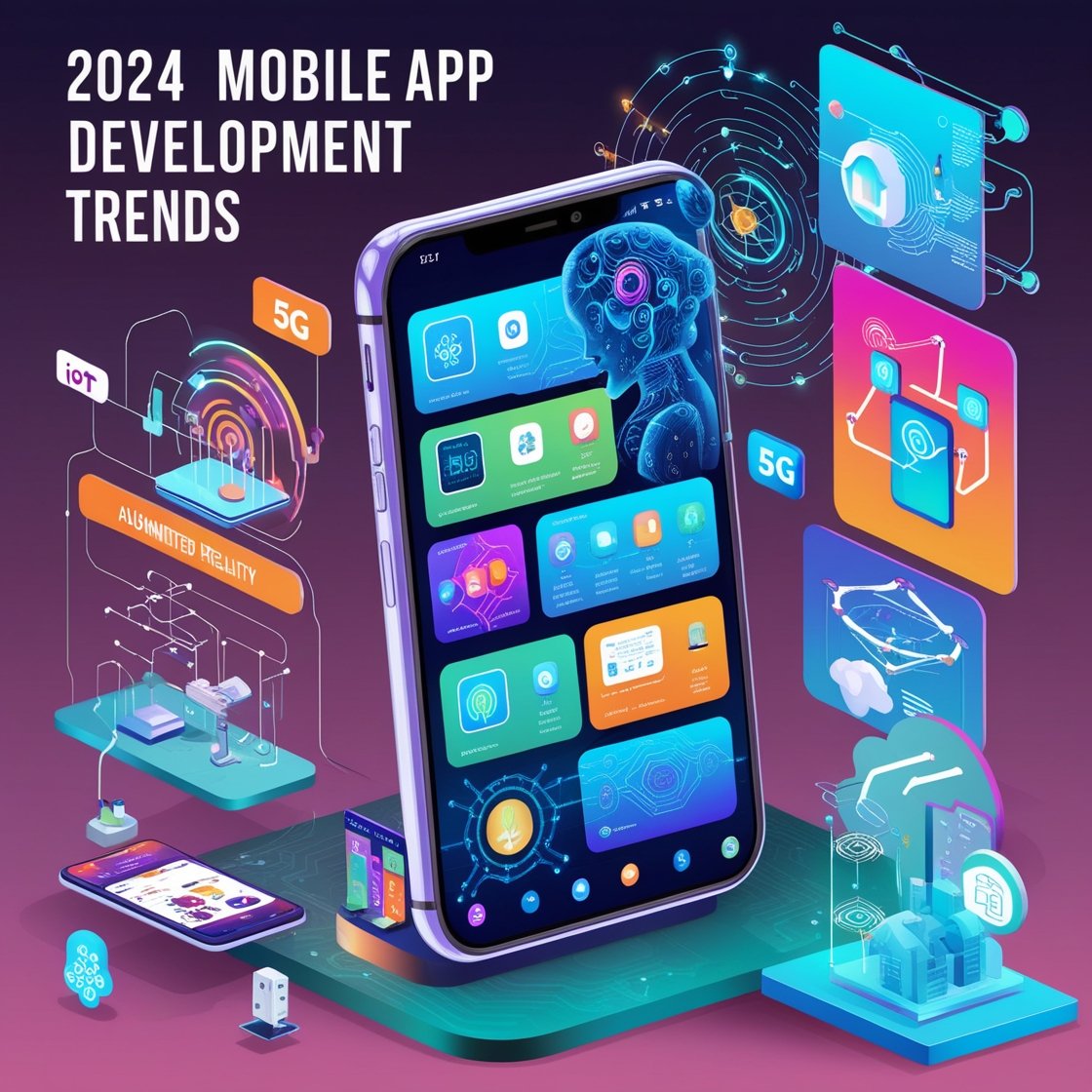Get to Know the Latest Mobile App Development Trends for 2024

The mobile app development landscape is rapidly evolving, driven by technological advancements and changing consumer behaviours. As we step into 2024, it’s essential for developers and businesses to stay updated on the latest trends that are shaping the industry. This blog explores the most significant mobile app development trends for 2024, providing insights into how these innovations can enhance user experience and drive business growth.
1. Artificial Intelligence (AI) and Machine Learning (ML)
AI and ML continue to dominate the mobile app development space. These technologies enable apps to provide personalized experiences by analyzing user data and predicting preferences. For instance, platforms like Netflix and Spotify use AI algorithms to recommend content based on user behavior. In 2024, expect more apps to integrate AI for improved user engagement and functionality.
2. 5G Technology
The rollout of 5G technology is revolutionizing mobile app performance. With faster data speeds and lower latency, developers can create more complex and interactive applications. This technology enhances experiences in areas such as gaming, streaming, and augmented reality (AR). As more devices become 5G-enabled, the demand for high-performance apps will increase significantly.
3. Augmented Reality (AR) and Virtual Reality (VR)
AR and VR are becoming mainstream in mobile app development. These technologies offer immersive experiences that engage users in unique ways. For example, IKEA’s AR app allows users to visualize furniture in their homes before making a purchase. As AR and VR capabilities expand, we can expect to see more innovative applications across various industries.
4. Internet of Things (IoT) Integration
IoT is transforming how users interact with their devices. Mobile apps are increasingly being developed to control smart home devices, wearables, and other IoT-enabled technologies. For instance, apps like Google Home allow users to manage multiple connected devices seamlessly. In 2024, IoT integration will be crucial for creating interconnected ecosystems that enhance user convenience.
5. Cross-Platform Development
Cross-platform development frameworks like React Native and Flutter are gaining traction as businesses seek to reach a broader audience with a single codebase. This approach saves time and resources while ensuring a consistent user experience across different platforms. Major companies like Airbnb and Walmart have successfully implemented cross-platform strategies, leading to increased efficiency in app development.
6. Low-Code/No-Code Development
The rise of low-code and no-code platforms is democratizing app development by allowing non-developers to create applications with minimal coding knowledge. Tools like Bubble and OutSystems enable businesses to rapidly prototype and deploy apps without extensive technical expertise. This trend is expected to grow in 2024 as organizations look for efficient ways to innovate.
7. Predictive Analytics
Predictive analytics is becoming increasingly important in mobile app development. By leveraging user data, developers can anticipate user needs and optimize experiences accordingly. For example, e-commerce apps can use predictive analytics to recommend products based on past purchases or browsing behaviour. This trend will enhance personalization and improve customer satisfaction.
8. Blockchain Technology
Blockchain technology is gaining traction in mobile app development due to its potential for enhancing security and transparency. Applications in finance, supply chain management, and healthcare are leveraging blockchain for secure transactions and data integrity. As awareness of blockchain benefits grows, more developers will explore its applications in their projects.
9. Wearable App Integration
With the increasing popularity of wearable devices like smartwatches and fitness trackers, integrating wearable technology into mobile apps is essential for developers. Apps that sync with wearables can provide users with real-time health data, notifications, and personalized insights. This trend will continue to grow as consumers seek more connected experiences.
10. Cloud Computing
Cloud computing transforms mobile app development by providing scalable storage solutions and enabling seamless collaboration among development teams. Cloud-based services allow apps to perform complex tasks without relying solely on device resources, improving performance and user experience. In 2024, expect more apps to leverage cloud technology for enhanced functionality.
Conclusion
As we move into 2024, staying abreast of these mobile app development trends will be crucial for developers looking to create innovative solutions that meet user demands. By embracing technologies such as AI, AR/VR, IoT, and cloud computing, businesses can enhance their offerings and drive growth in an increasingly competitive market.














